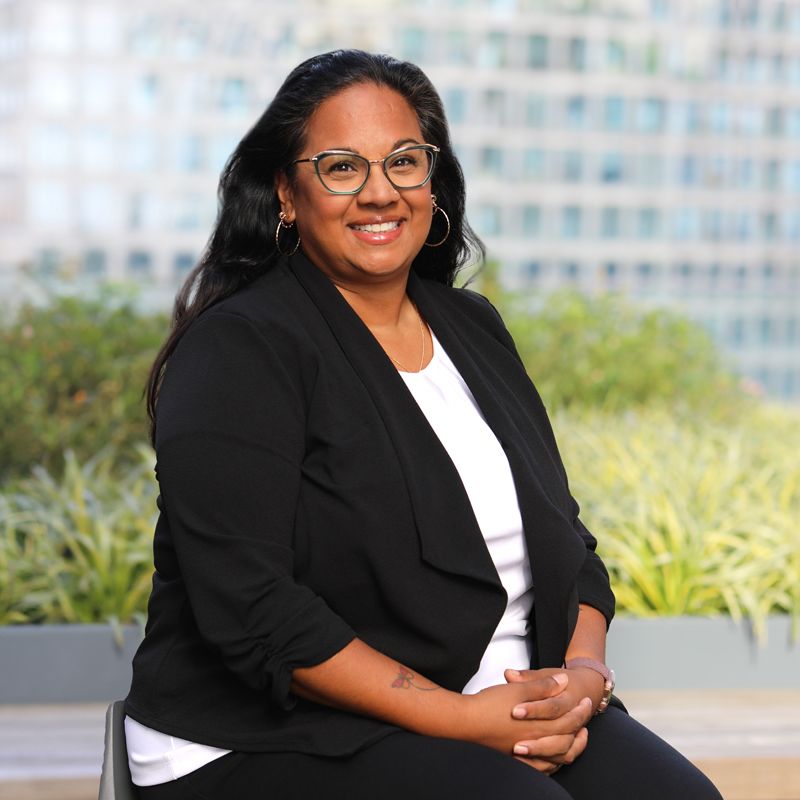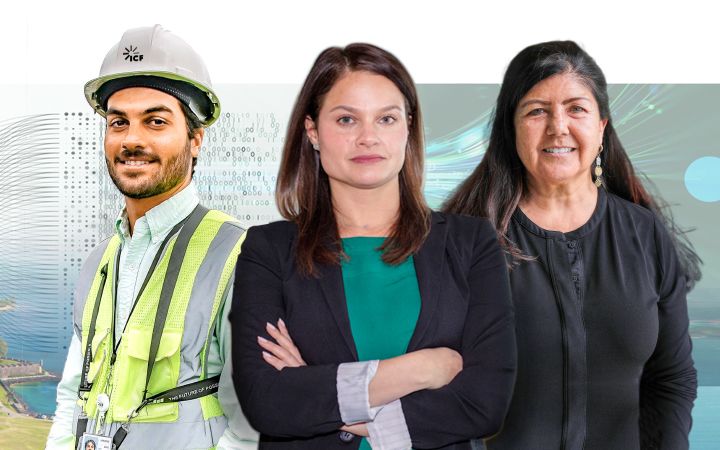The overdose crisis is one of the most serious issues facing the United States. Drug overdose deaths increased by 55% from 2019 to 2022, with 75% of those fatalities resulting from opioid use.
But according to the Centers for Disease Control and Prevention (CDC), 67% of fatal overdoses had at least one potential opportunity for intervention. And a single intervention can save a life.
That’s where Maya comes in. She’s on a mission to make those interventions count.
Maya leads a team working with CDC’s Division of Overdose Preventions (DOP) to create and disseminate overdose prevention data and resources to state, territory, and local health departments all over the country. By accelerating opportunities for learning around overdose prevention and monitoring, we’re making a difference at the community level—ultimately preventing and reversing overdoses.
While providing health teams with resources may sound straightforward, it is complex and multi-faceted. Each state, territory, and local jurisdiction is dealing with a broad range of unique overdose issues, from community engagement and policies to funding and staffing. And where one state may need help partnering with law enforcement on overdose events, another may need assistance in standing up hospital support services. For each unique issue and location, there is an incredible amount of data to compile and then analyze to generate targeted resources and training plans for local teams to have tangible impact.
There’s no one solution that meets everyone’s needs. So, Maya has become a bridge-builder. A connection-maker. A bearer of hopeful solutions amidst a devastating crisis.
Maya and her team built a large language model that uses artificial intelligence to quickly review hundreds of thousands of pages of jurisdictional overdose plans. This allows them to find commonalities, like where state and local health departments are struggling—and then create a wide range of training and education resources to address those struggles. This includes standing up mentoring programs, consultations, and practical demonstrations. It also includes creating opportunities for health teams to share information, build skills, and engage in peer-to-peer learning.
The key to success? Ensuring local context, culture, and circumstances are considered. Maya is committed to helping to broker connections so that expertise is an accelerator to local change and builds capacities of communities to create sustainable solutions.
Using human-centered design and adult learning theory to create resources that can be adapted and applied effectively within local environments. Maya prioritizes creating a collaborative environment that fosters innovation, inclusion, and engagement. She and her team encourage a trauma-informed approach to training grounded in non-stigmatizing language to put everyone in the best possible position to succeed. In this safe space, they are not just combating the overdose crisis—they are building resilience, fostering change, and truly making a difference in reducing overdose deaths.
Maya is not just a health advocate. She's a catalyst for transformation, paving the way to a brighter, overdose-free future.

